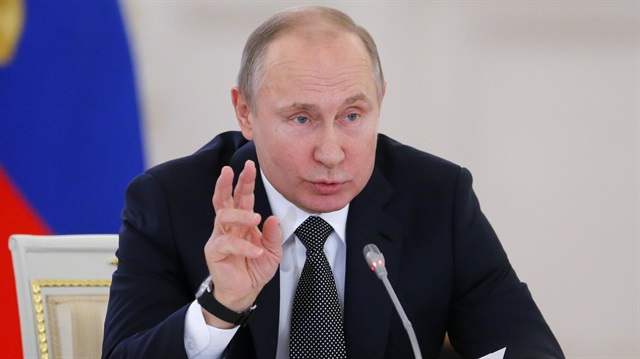
On March 18, 2018, Vladimir Vladimirovich Putin was reelected as president of the Russian Federation for a second consecutive term, and for the fourth time overall. In fact, Vladimir Putin first ascended to the highest echelons of power in 1999 when he was appointed prime minister by the then-President Boris Yeltsin and became Acting President when Yeltsin resigned in December 1999, thereby becoming the public face of Russia ever since. He was elected to the presidency for the first time in 2000. As he was constitutionally barred from seeking a third consecutive term in 2008, he became prime minister between the years 2008 and 2012 while Dmitry Medvedev, the current prime minister became president. With a constitutional reform in 2008, extending the mandate of the term of the president to six years from the previous four-year term limit, Vladimir Putin’s new term will keep him in office until 2024.
Putin’s electoral victory was not a surprise win as he readily won over 75 percent of the vote against opponents who stood no real chance in unseating him. His most serious opponent, Alexei Navalny, was barred from seeking office due to a possibly-fabricated financial crimes conviction; although realistically he stood no chance in defeating Putin had he been on the ballot.
Two questions come to mind in light of this latest show of electoral strength by Vladimir Putin. The first is why does the Russian public support him; the second is what his victory actually means for Russia on the global stage. In reality, both questions are connected.
In fact, Putin’s popularity at home stems, to a large degree, from the way he is perceived abroad, whether in a positive or a negative way. Even though Putin did not clearly articulate a foreign policy program in the run up to the election, the perception at home is that his foreign policy has been marked with success. According to a Levada Center poll of December 2017, 72 percent of Russians think that Russia is a “great power” as opposed to the 31 percent that thought the same thing in March 1999. According to another poll, 70 percent of Russians believe that “reunification” with Crimea in March 2014 was good for their country while 73 percent believe that Russia has achieved its goals in Syria.
According to journalist Elena Chernenko, in a recent opinion piece in The New York Times, Vladimir Putin’s popularity at home is also linked to the accolades he periodically receives in the western press. From example, Forbes magazine has named him the “most powerful person in the world” for three consecutive years while he was Time magazine’s Person of the Year for 2017. Similarly, President Trump’s national security strategy of December 2017 recognizes Russia as a great power in contrast to President Obama’s utterings in 2014 that Russia is merely a “regional power” whose actions in Ukraine are a reflection of weakness rather than strength. Chernenko also considers that the negative stereotypes regarding Putin and Russia in the West such as the accusations of Russia’s meddling in the U.S. presidential elections in 2016 as well as the latest allegations regarding Russian involvement in the Salisbury nerve agent attack have increased Putin’s standing in Russia that he is a statesman that is either admired or feared internationally.
The problem for the West is that the very accolades, which Putin receives at home for augmenting Russia’s great power standing, clash with the interests of the United States and other Western powers that consider the occupation of Crimea as illegal and in violation of international law and that Russian interests and actions in Syria, with its support of the Assad regime, contradicts their perception of what the future settlement of the Syrian crisis should be.
Yet not all is rosy for Putin who, after having secured his fourth mandate, has to deal with the consequences of his actions. The drawing down from Syria that he has called for is a deeply problematic exercise as Assad only controls one third of Syrian territory while the plethora of state and non-state actors on the ground there make for a very chaotic management of an eventual diplomatic solution to put an end to the civil war. How can Russia disengage in the knowledge that the United States and the West will not provide aid for the reconstruction of Syria as long as Assad remains in power there? In the meantime, the human cost of its involvement in the Syrian quagmire will keep increasing for Russia as it suffers from loss of lives and military hardware. Most importantly, the economic sanctions against Russia due to its continued fueling of the war in Eastern Ukraine are having a negative impact on Russia’s economy. With World Bank forecasts of less than 2 percent economic growth in 2019, and a growing number of Russians living below the poverty rate, something will have to give either sooner or later and could severely test the trust of the Russian electorate in their leader.
Vladimir Putin has proven himself to be a highly competent leader ever since coming to power in 1999, yet it remains to be seen whether he can maintain his aura of invisibility at home and abroad. As the linkage between his foreign policy and popular support have been clearly established, setbacks on the international front such as tougher sanctions from the West and setbacks in Syria and elsewhere could become his Achilles heel. Time will tell.
Dimitrios Triantaphyllou
20 March 201















